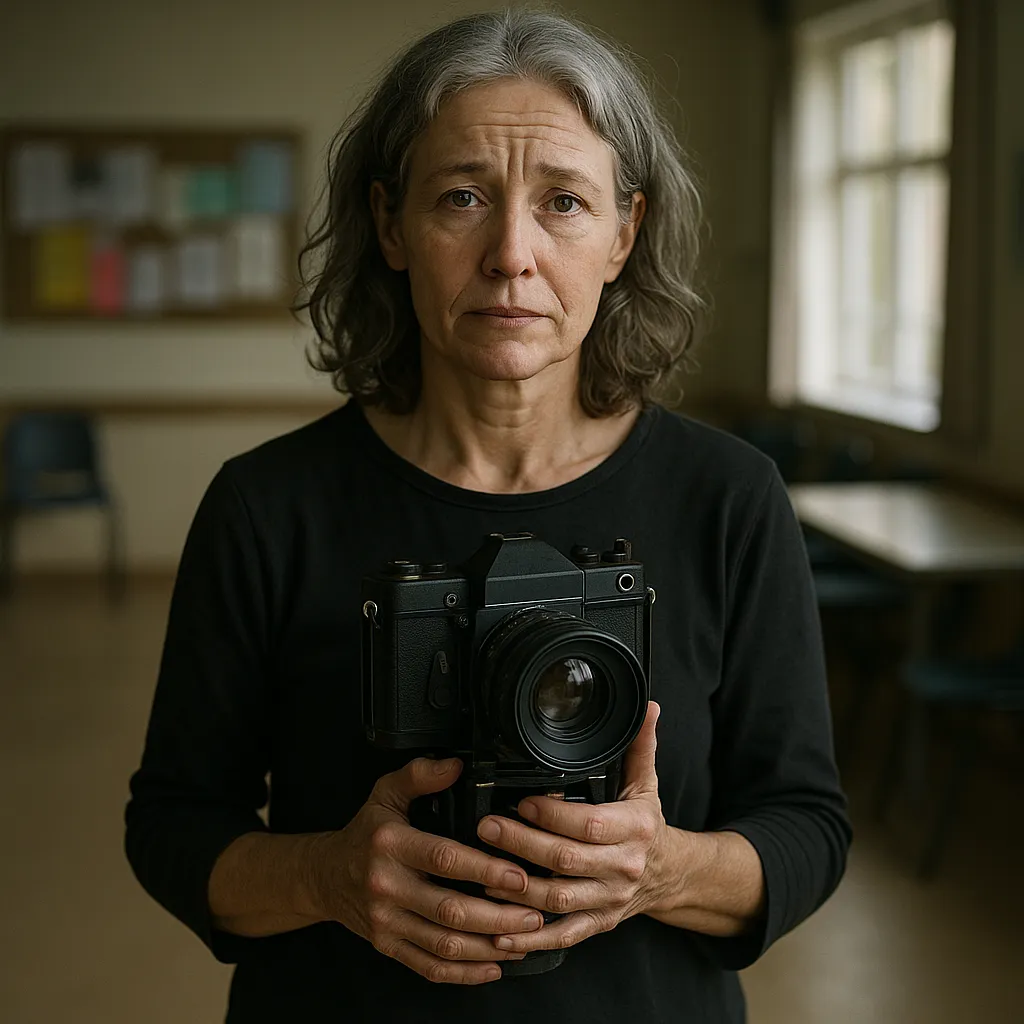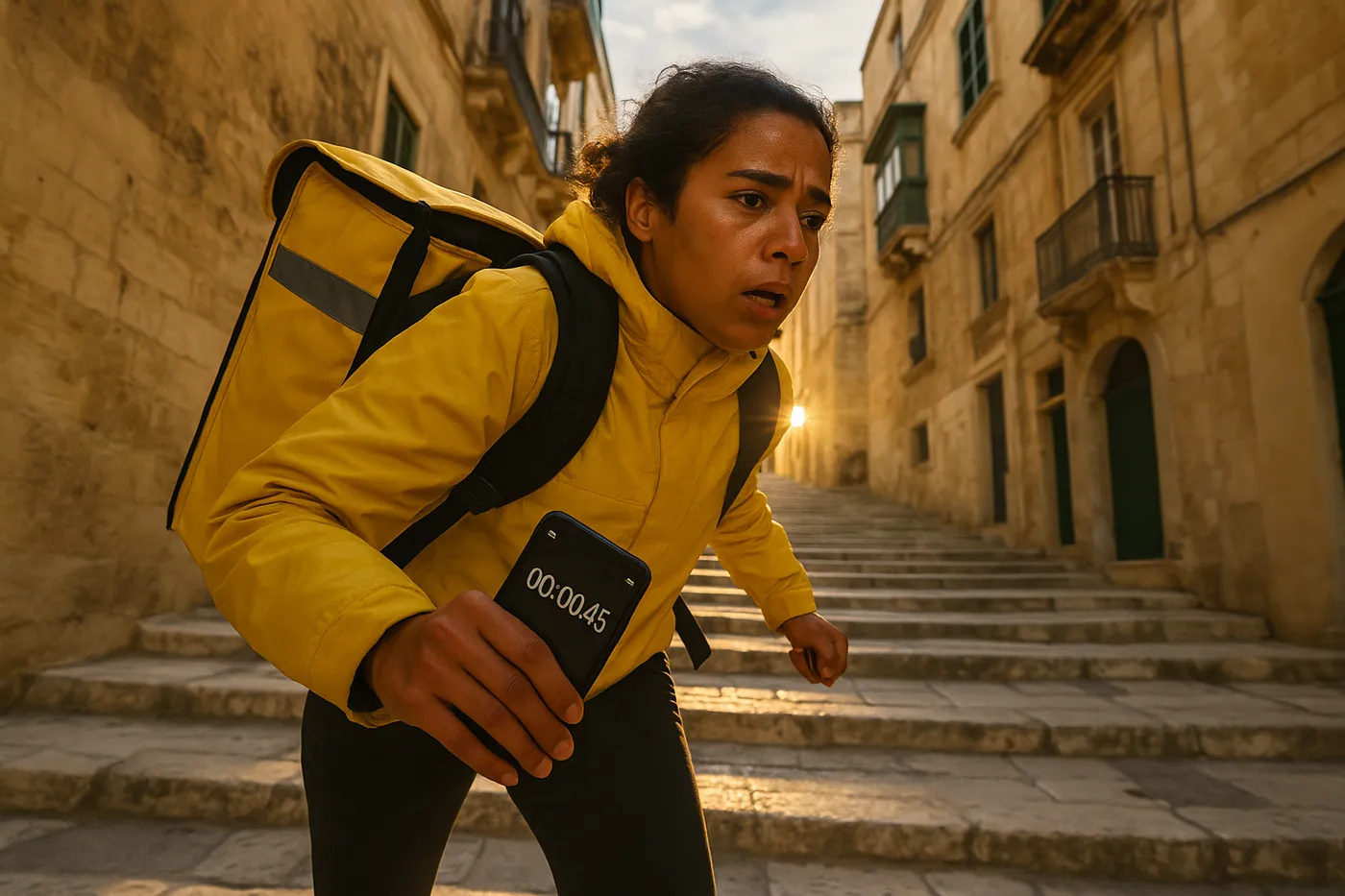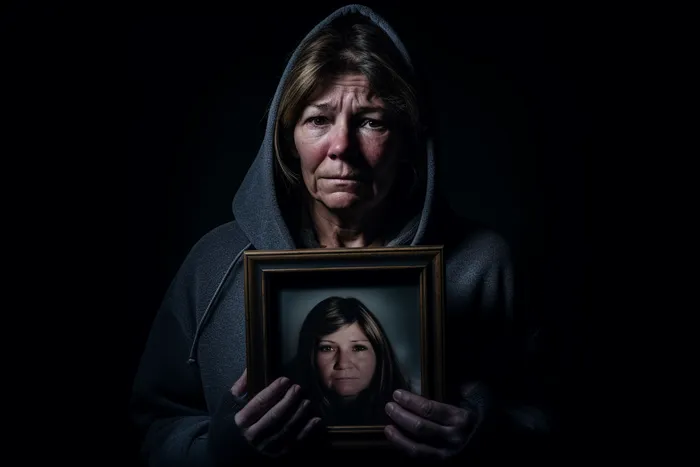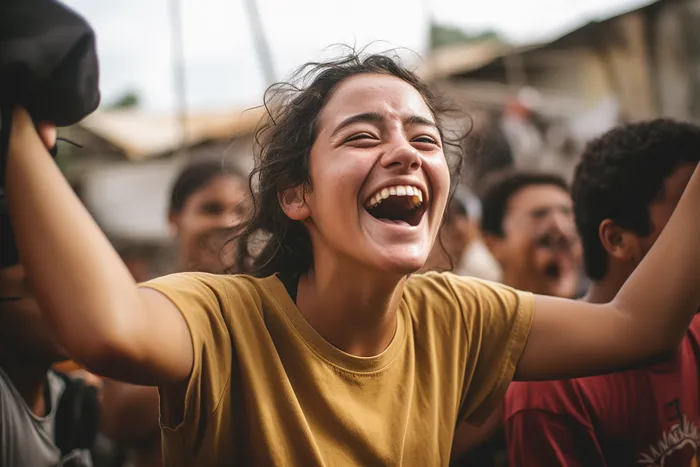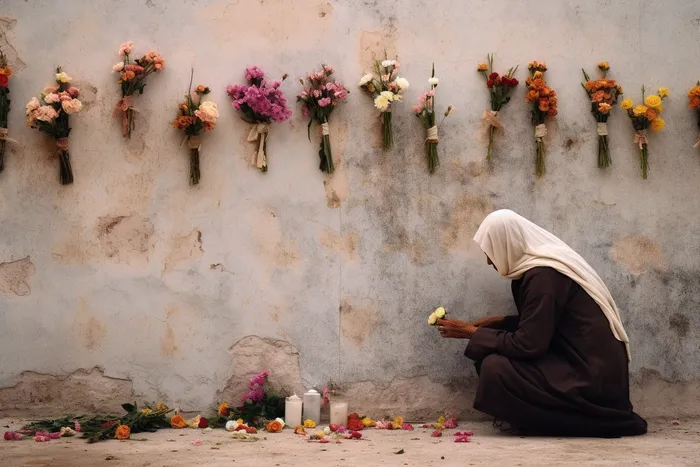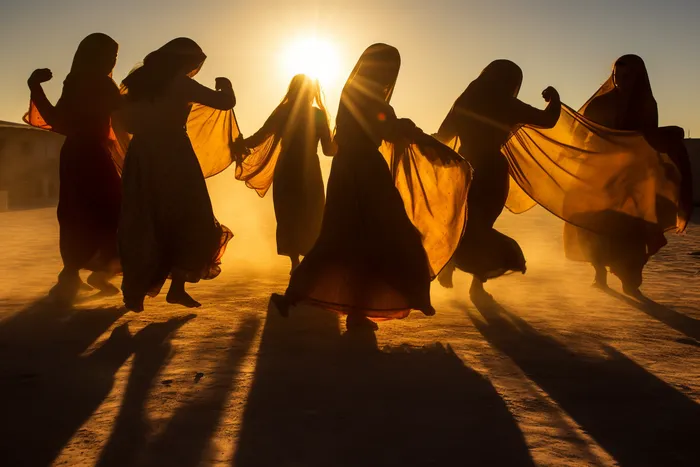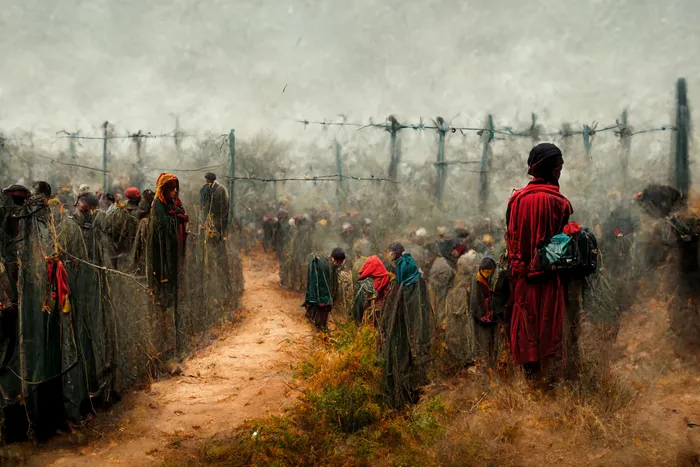Group Portrait
The global mental health crisis has quietly spawned a revolution in care—not in hospitals or clinics, but in church basements, community centers, and borrowed spaces where strangers become lifelines. Emma Thompson's Group Portrait documents this grassroots healing movement, creating formal portraits of peer support groups that elevate collective recovery to the dignity usually reserved for official institutions.
Working across six countries over three years, Thompson discovered support groups that had become essential infrastructure: grief mothers forming protective circles in Mumbai, addiction recovery warriors creating human timelines of healing in Detroit church basements, refugee PTSD survivors bridging cultural displacement in Berlin community centers. Her large format camera transforms these ordinary meetings into historical documents, the ceremonial process itself becoming part of the healing ritual.
Thompson's approach challenges the individualistic framing of mental health treatment. Where medical photography typically isolates subjects as cases, Group Portrait shows healing as fundamentally collective—faces openly displayed, bodies arranged by choice rather than symptom, voices combined rather than diagnosed. The photographer's own journey through grief support after losing her daughter creates the series' foundation of trust and understanding.
The work reveals how peer support fills gaps that professional systems cannot bridge: the shared language of lived experience, the democracy of mutual aid, the radical act of showing up when everything feels broken. These portraits document not just crisis response but innovation—communities writing new scripts for care when old ones fail. In an era where mental health struggles touch every family, Group Portrait shows the healing happening in the spaces between official help and private suffering.
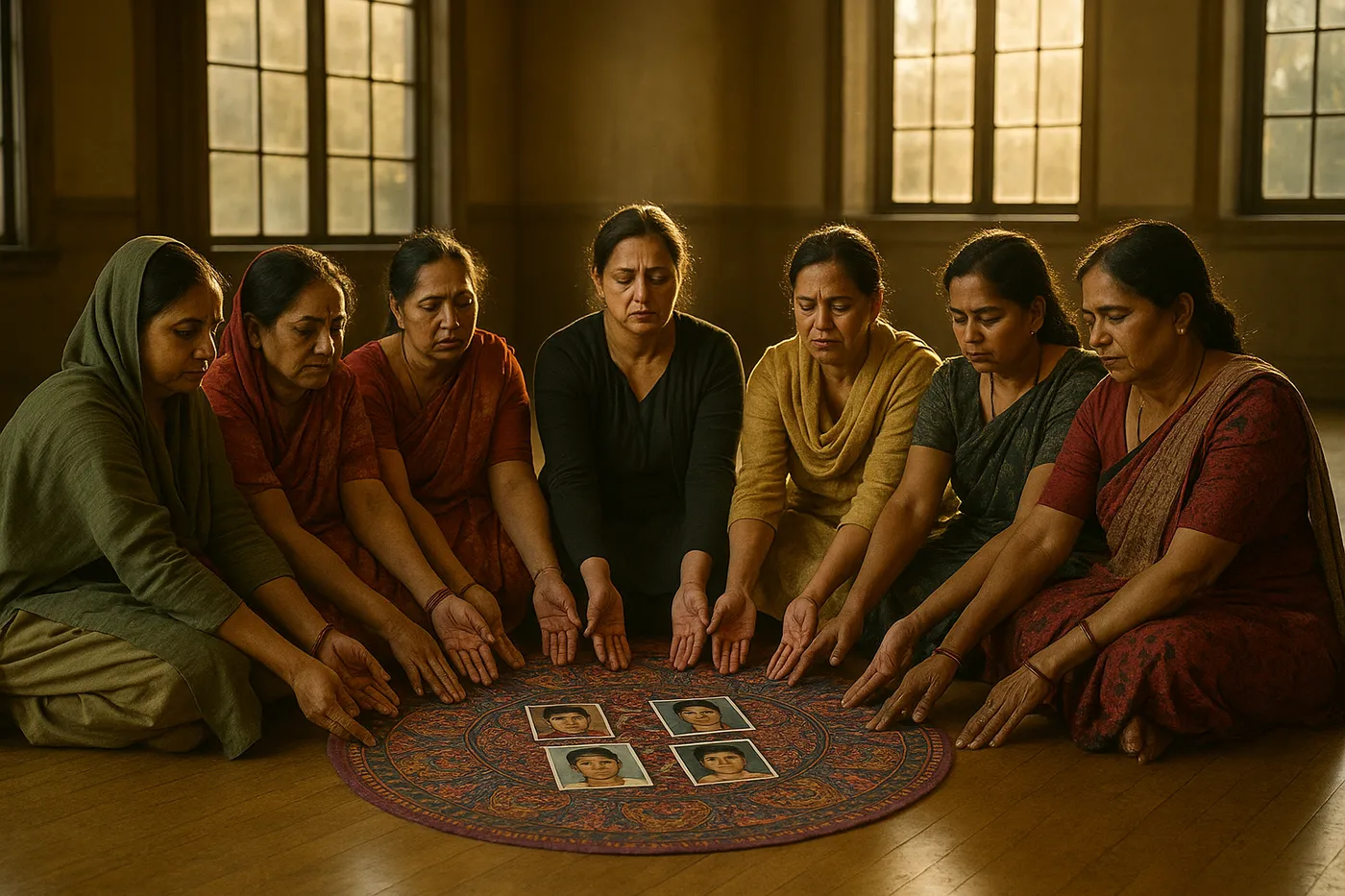
Image 1: Grief Mothers Circle
Mumbai, India - Women's Support Group for Suicide Loss
Seven mothers who lost children to suicide arrange themselves in a protective circle on the floor of a community center, hands reaching toward the center where photos of their children rest on a colorful mandala cloth. Their faces show the particular gravity of shared understanding—grief recognized, witnessed, held. The late afternoon light through tall windows creates a Renaissance atmosphere, transforming this weekly meeting into something sacred. Each woman chose her position, creating an organic mandala of mutual support.
Image Prompt: Seven Indian mothers sitting in circle on floor of community center, hands reaching toward center where children's photos rest on colorful mandala cloth, late afternoon golden light streaming through tall windows, shot on 8x10 large format camera with 150mm lens at f/11, natural lighting creating Renaissance atmosphere, women wearing mix of traditional and modern dress, faces showing grief and compassion, award-winning photojournalism, World Press Photo style
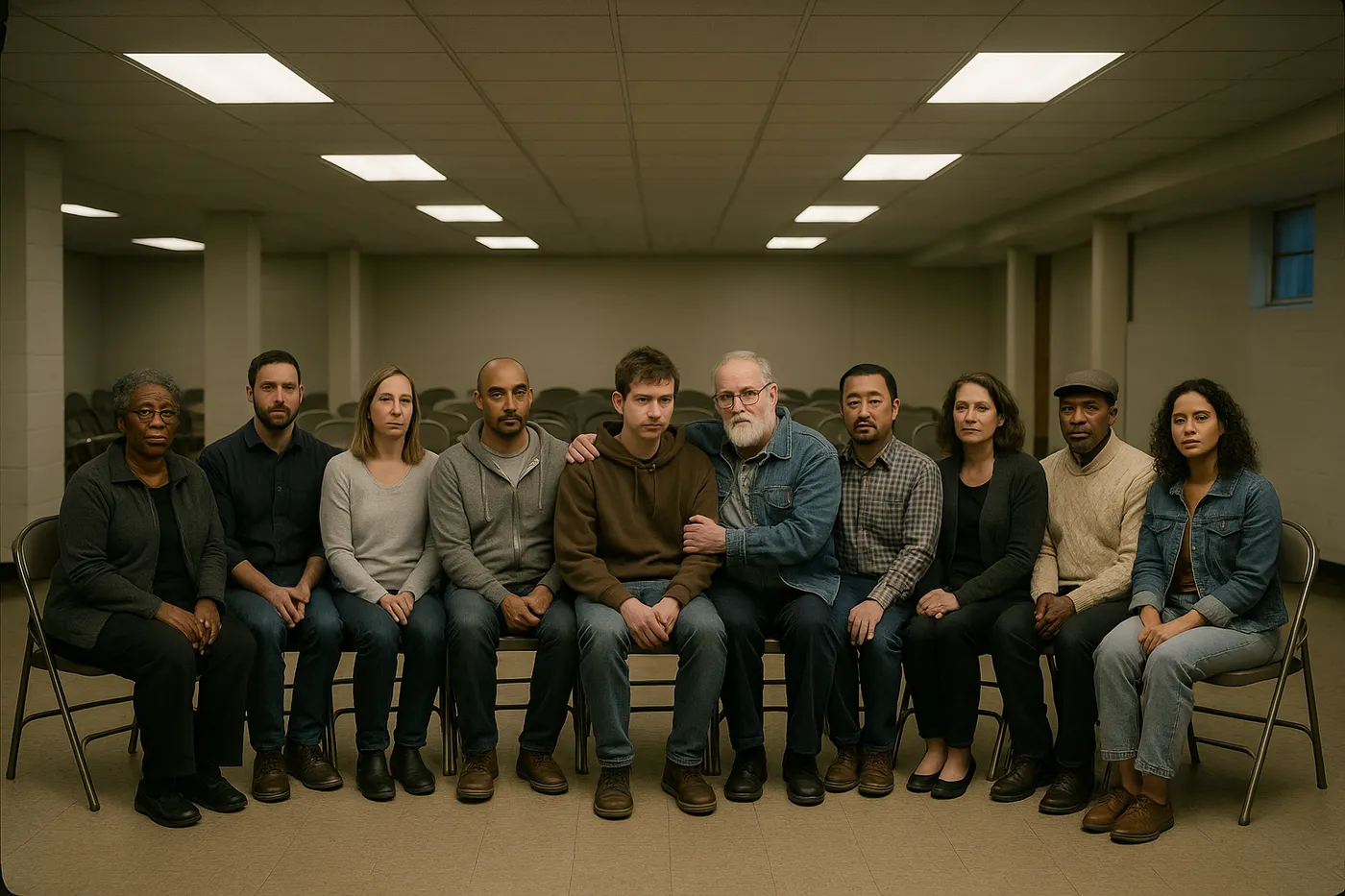
Image 2: Recovery Warriors Timeline
Detroit, USA - Addiction Recovery Support Group
Twelve people in various stages of addiction recovery arrange themselves chronologically by sobriety time in the basement of St. Mark's Baptist Church, creating a human timeline from newcomer to old-timer. Their positioning tells the story: the nervous newcomer sits slightly apart while the old-timer's hand rests protectively on their shoulder. Folding chairs form a crescent behind them, the institutional fluorescent lighting softened by the photographer's careful positioning. This is democracy in action—healing measured not in credentials but in days.
Image Prompt: Twelve diverse people arranged chronologically by recovery time in church basement, folding chairs in crescent behind them, institutional fluorescent lighting softened by careful positioning, nervous newcomer and protective old-timer showing healing progression, mix of ages and backgrounds, shot on 8x10 large format with 210mm lens at f/8, dignified positioning showing mutual support, award-winning documentary photography, World Press Photo winning
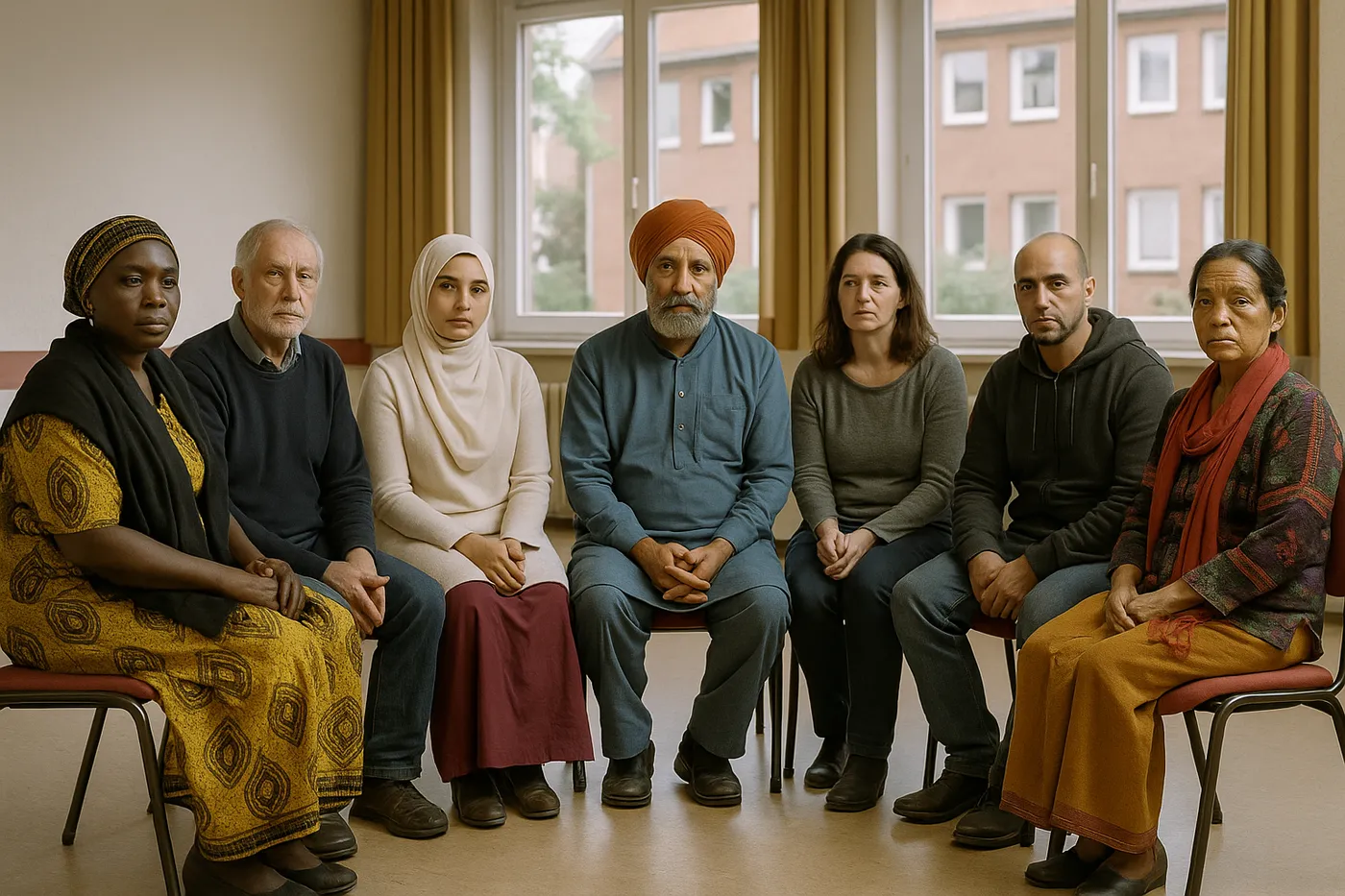
Image 3: Bridges Across Displacement
Berlin, Germany - Refugee PTSD Support Group
Eight trauma survivors from Syria, Afghanistan, and Somalia gather in a circle at a Berlin community center, their cultural dress mixing with Western setting to show resilience across displacement. They've arranged themselves with deliberate care—the Afghan grandmother's headscarf echoes the Somali woman's hijab while the Syrian father's prayer beads catch the light. Their faces hold the weight of what they've seen but also the strength of what they've survived. The institutional space becomes home through their presence.
Image Prompt: Eight trauma survivors from different countries sitting in circle at German community center, mix of traditional cultural dress and Western clothing, deliberate careful arrangement showing mutual respect, institutional space made warm by their presence, natural light from community center windows, shot on 8x10 large format camera with 150mm lens at f/11, faces showing weight of experience and strength of survival, award-winning photojournalism, World Press Photo style
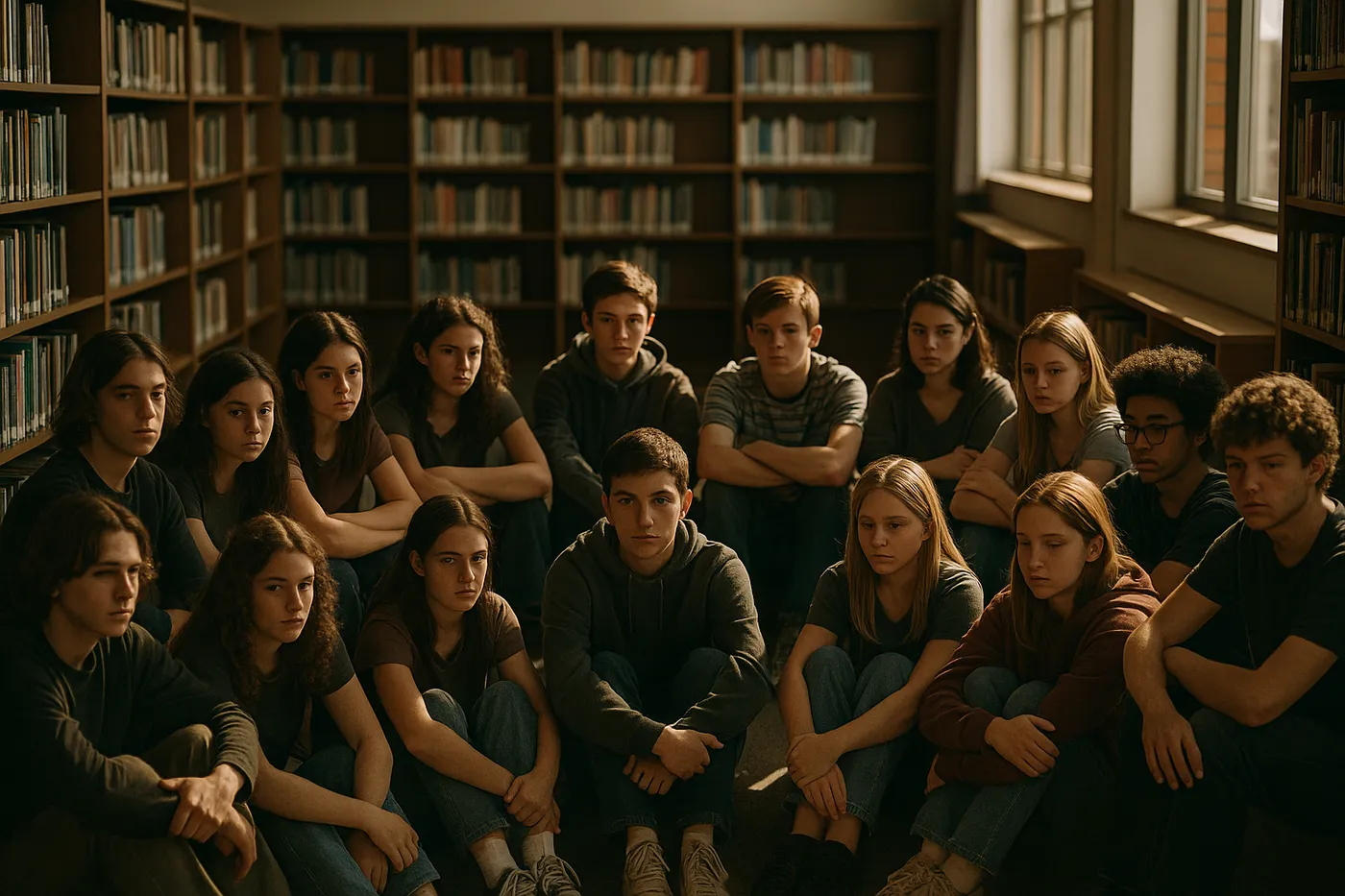
Image 4: Young Minds Learning
Auckland, New Zealand - Teen Anxiety Support Circle
Fifteen teenagers sit in a circle in their school library, surrounded by books that represent formal education while they engage in the emotional learning no curriculum teaches. They've positioned themselves with typical adolescent awareness—some leaning forward with eager vulnerability, others holding back with protective skepticism. The late afternoon light through library windows creates long shadows across the floor, while the books behind them speak to all the knowledge that matters but isn't taught. This is education in real time.
Image Prompt: Fifteen teenagers in circle in school library surrounded by bookshelves, mix of vulnerable and protective body language showing adolescent self-awareness, late afternoon light through library windows creating long shadows, books representing formal vs emotional education, shot on 8x10 large format with 210mm lens at f/8, natural lighting emphasizing youth and hope, award-winning documentary photography, World Press Photo winning
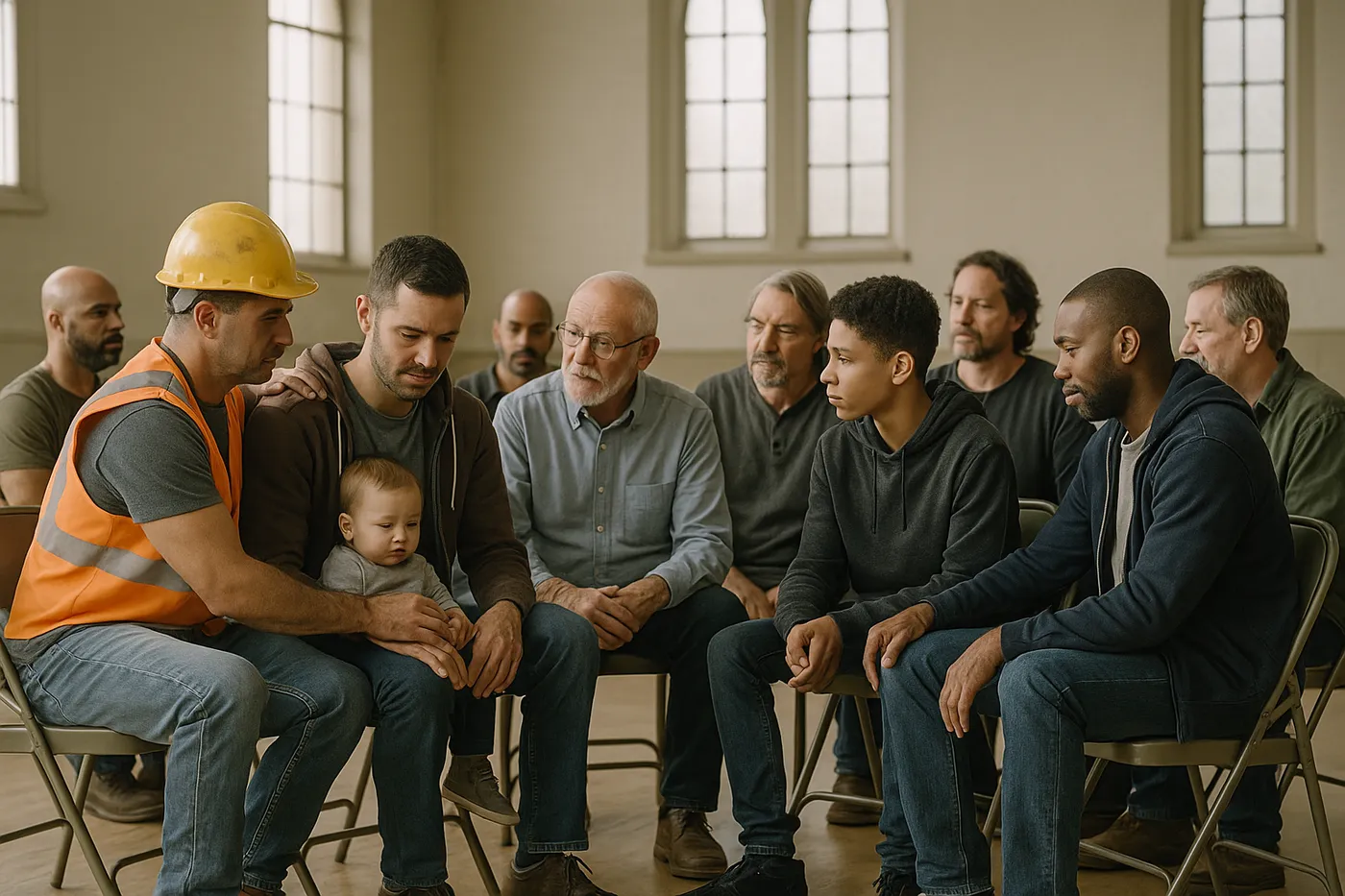
Image 5: Breaking the Code
Leeds, UK - Men's Depression Support Group
Ten men of various ages sit in a circle in a community center, their arrangement deliberately breaking stereotypes about masculine vulnerability. The middle-aged construction worker has his arm around the young father's shoulders while the elderly accountant leans forward to catch every word from the teenage apprentice. Their formal positioning for the camera shows a profound comfort with being seen in their struggles—toxic masculinity undone through simple acts of witnessing. The natural light from high windows creates cathedral-like atmosphere in the ordinary space.
Image Prompt: Ten men of various ages and backgrounds sitting in circle in community center, deliberately showing physical comfort and emotional support between them, breaking masculine stereotypes, construction worker comforting young father while elderly man listens to teenager, natural light from high windows creating cathedral atmosphere, shot on 8x10 large format camera with 150mm lens at f/11, formal positioning showing comfort with vulnerability, award-winning photojournalism, World Press Photo style
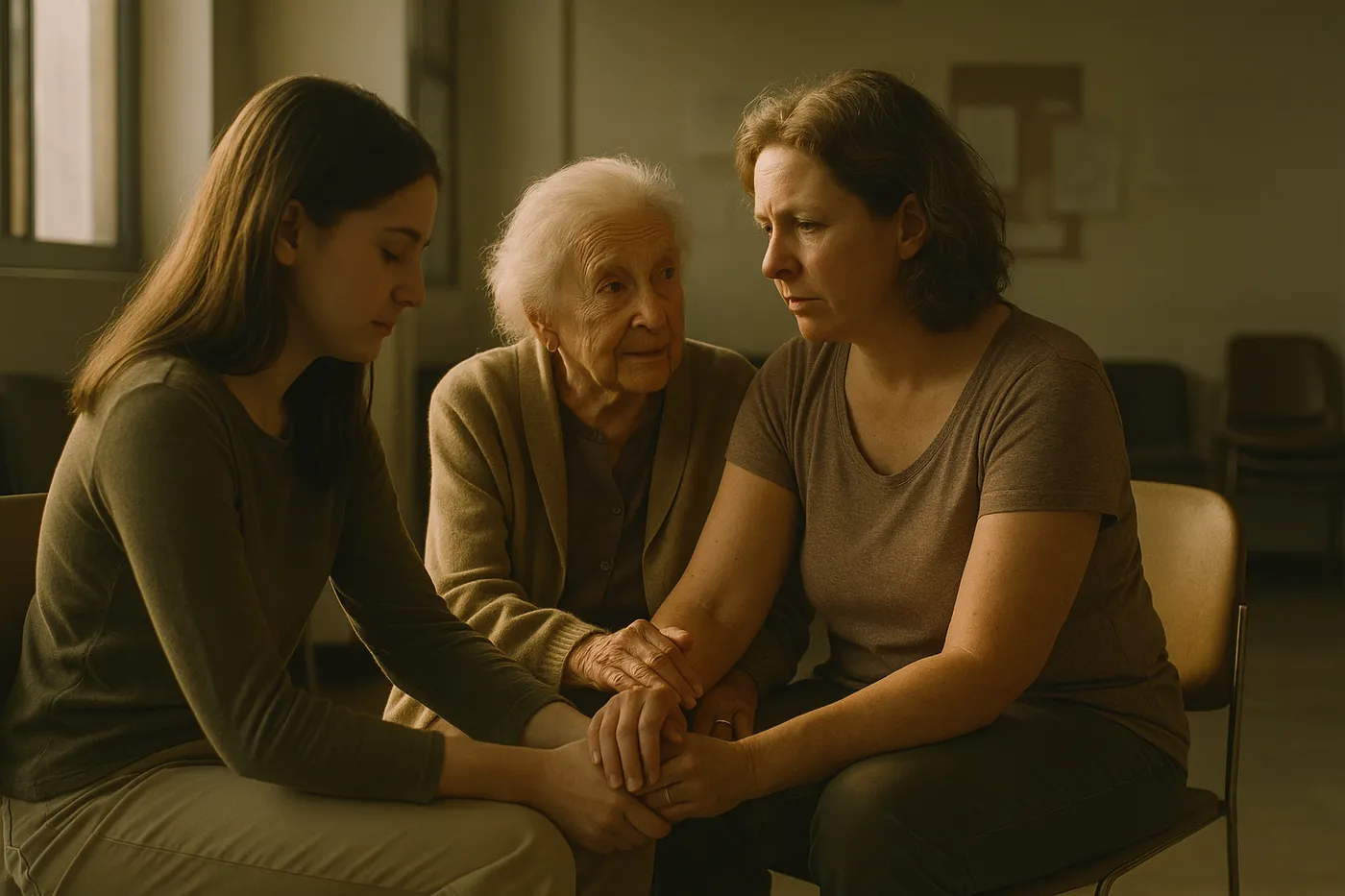
Image 6: Generational Healing
San Francisco, USA - Intergenerational Mental Health Circle
Three generations arrange themselves in a circle at a community mental health center—elderly survivors teaching coping skills to middle-aged parents who guide anxious young adults. The 75-year-old Holocaust survivor places a gentle hand on the shoulder of a 45-year-old mother dealing with postpartum depression, while she in turn offers tissues to a 20-year-old struggling with university pressures. Their arrangement shows healing as inherited wisdom, trauma transformed into resilience across decades. The warm afternoon light creates an atmosphere of hope.
Image Prompt: Three generations arranged in circle at community mental health center, elderly Holocaust survivor comforting middle-aged mother who helps young adult, showing healing as inherited wisdom, warm afternoon light creating hopeful atmosphere, institutional space made intimate by human connection, shot on 8x10 large format with 210mm lens at f/8, natural lighting emphasizing intergenerational care, award-winning documentary photography, World Press Photo winning
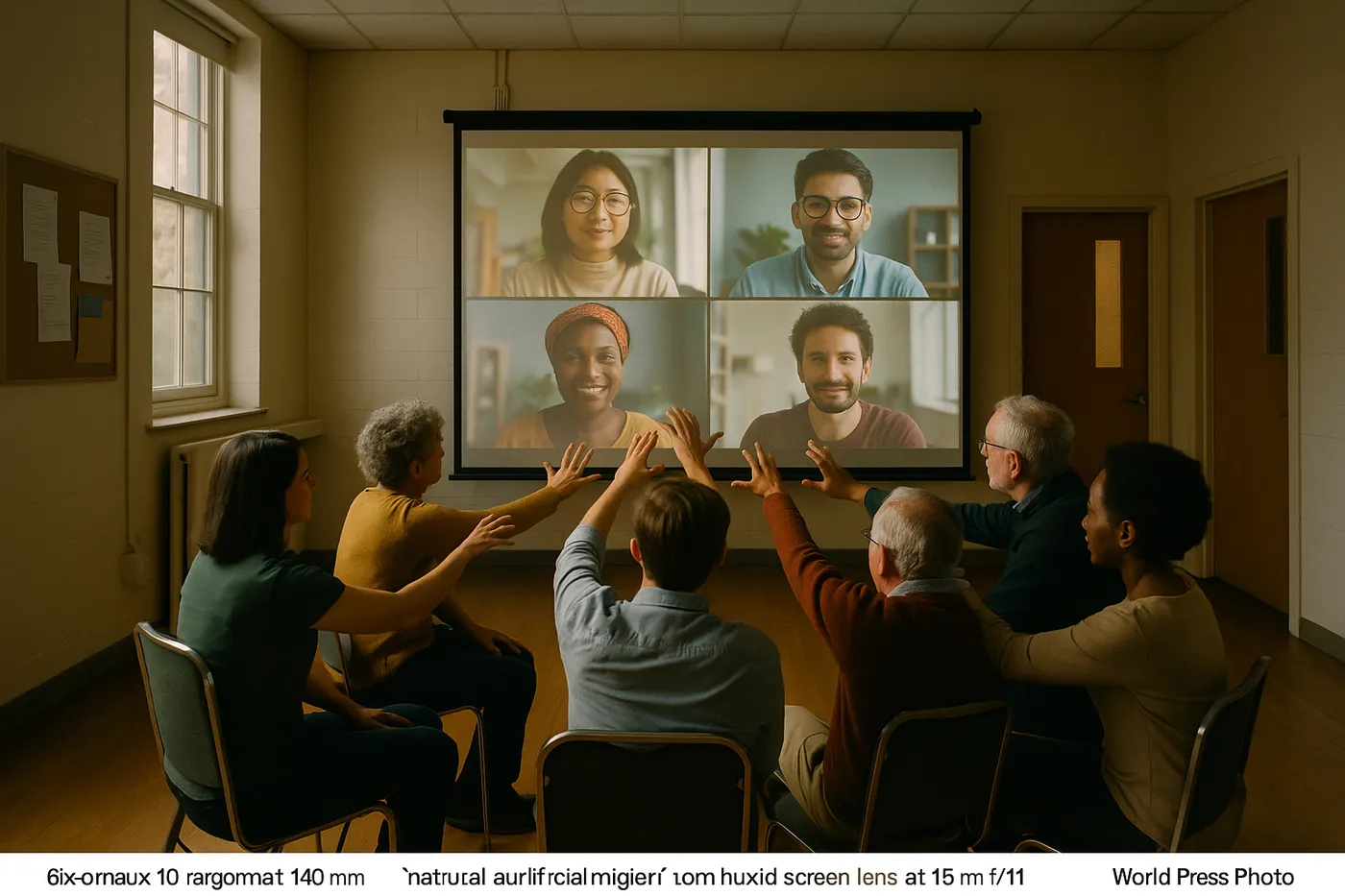
Image 7: Digital Connection
London, UK - Hybrid Support Group During Pandemic
A remarkable scene in a community center where six people sit in a circle facing a large screen displaying four virtual participants from around the world. The in-person members reach toward their digital companions, creating a bridge between physical and virtual healing. Post-pandemic innovation has made support global—the woman in London connects with the man in Lagos while the teenager in Toronto shares space with the grandmother in Mumbai. Technology serves healing rather than isolating it.
Image Prompt: Six people in circle facing large screen showing four virtual participants from around world, in-person members reaching toward digital companions, community center with natural light mixing with screen glow, showing post-pandemic innovation in mental health support, global connection transcending geography, shot on 8x10 large format camera with 150mm lens at f/11, natural and artificial light creating bridge between physical and virtual, award-winning photojournalism, World Press Photo style
Photographer Portrait Prompt
British woman in her late 40s with compassionate eyes and prematurely gray hair, wearing simple dark clothing, weathered hands holding large format camera, standing in community center with soft natural light, lines around eyes showing both grief and hope, professional portrait photography
Emma Thompson Biography
Emma Thompson discovered photography in the worst possible way—through the shared silence of grief support groups after losing her 19-year-old daughter Sarah to suicide in 2019. Sitting in those circles of folding chairs, she noticed how these ordinary spaces became sanctuaries where strangers became family through shared understanding. The camera came later, almost accidentally, when she began documenting the extraordinary healing happening in such humble spaces.
Her background spans community work and visual storytelling, with early projects documenting food banks across Northern England and portraits of healthcare workers during the pandemic. But Group Portrait represents her most personal and ambitious work—three years traveling to document peer support groups worldwide, creating formal portraits that elevate collective healing to historical importance.
Thompson's approach emphasizes collaborative process and participant agency. Each group spent hours discussing how to arrange themselves, with the photographer serving as facilitator rather than director. The slow process of large format photography became part of the healing ritual—requiring presence, patience, and mutual trust. "These aren't my portraits," Thompson insists. "They're collective self-portraits created through shared witness."
The series has raised over £50,000 for peer support initiatives across the UK and been featured in exhibitions from London to Mumbai. Thompson continues photographing support groups while advocating for peer support funding, transforming personal tragedy into public healing. Her work proves that sometimes the most powerful medicine is simply showing up for each other when everything else fails.

